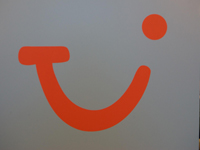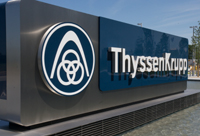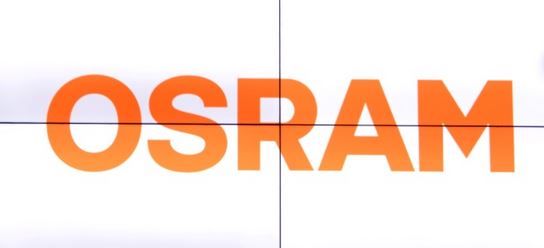Capital News
Commerzbank AG: No Dividend for 2019 is the least Worry at the Moment
 Following the European Central Bank´s recommendation to banks not to pay a dividend until at least Oct. 1st, 2020, the Board of Managing Directors decided not to propose a dividend for the year 2019 to the AGM 2020. Also, the company added that the Board does not plan for a dividend payment until the uncertainties of COVID-19 have ended, but rather intend to decide on this topic again at a later time as appropriate (whenever the time comes). It is not comforting for shareholders that due to the omission of dividends future quarterly profits can be fully included in the regulatory capital ratios.
Following the European Central Bank´s recommendation to banks not to pay a dividend until at least Oct. 1st, 2020, the Board of Managing Directors decided not to propose a dividend for the year 2019 to the AGM 2020. Also, the company added that the Board does not plan for a dividend payment until the uncertainties of COVID-19 have ended, but rather intend to decide on this topic again at a later time as appropriate (whenever the time comes). It is not comforting for shareholders that due to the omission of dividends future quarterly profits can be fully included in the regulatory capital ratios.
The decision did not come as a surprise, given the low profitability of the bank. The ECB´s recommendation offered a good excuse. The side effect on the equity ratios is nice to know, but hopefully not too relevant. However, what shareholders are waiting for is news on how the bank wants to move forward with its efforts to overcome its lack of profitability since the unfortunate integration of Dresdner Bank. The best assumption, however, seems to be that the implementation of the recently announced small initiatives is now in danger/postponed/canceled, etc. Does somebody have more to offer than solid speculations on this topic? A good role model for management and communication looks different. But then again, maybe that was never the intention.
TUI AG: Government Guarantee supports the Business until normal Operations are resumed
 Travel and leisure are probably one of the hardest-hit industries by the COVID-19 crisis. In light of this, TUI AG announced its decision to suspend the vast majority of all travel operations until further notice, including the package travel, cruises, and hotel operations to contribute to global government efforts to mitigate the effects of the spread of COVID-19 in mid-March.
Travel and leisure are probably one of the hardest-hit industries by the COVID-19 crisis. In light of this, TUI AG announced its decision to suspend the vast majority of all travel operations until further notice, including the package travel, cruises, and hotel operations to contribute to global government efforts to mitigate the effects of the spread of COVID-19 in mid-March.
But was there an alternative to this at all? Probably not, which is why the company took substantial cost measures to mitigate the earnings effects and decided to apply for state aid guarantees to support the business until normal operations are resumed.
Two weeks later TUI received a commitment of the Federal Government for a EUR 1.8 billion KfW loan to increase the existing revolving credit facility of EUR 1.75 billion. Thereby, TUI would have cash and available facilities of EUR 3.1 billion (subject to the approval of the banking consortium). In light of current circumstances, shareholders probably don´t mind the required waiver of dividend payments for the term of the credit line. But will there be a commitment by the Board to repay the credit line asap?
CANCOM SE: Far-reaching Consequences of the COVID-19 Crisis, and a little Correction of the Accounts
Many observers are surprised by the far-reaching consequences of the COVD-19 crisis. A prime example is CANCOM SE, which on March 24th announced that the publication of the annual report 2019 is postponed from March 30th to April 28th, due to the coronavirus measures. According to the announcement, the main reason for the delay in the preparation process was the difficult circumstances regarding availability and reconciliations during the preparation of the annual financial statements due to the spread of the coronavirus.
Wow, under these circumstances, the further reason mentioned by the way hardly matters. The initial audit by the new auditor KPMG resulted in reclassifications in the revenue recognition with the so-called principal-versus-agent classification. IFRS uses different criteria to assess whether the selling company (i.e. CANCOM) may show revenue in the full amount of the actual invoice to the customer (principal), or whether the company is classified as an agent and may show a reduced value as revenue (agent, so-called net-presentation9. While CANCOM previously showed revenue as the principal in the amount invoiced, a change in the assessment of agent status has been made in the 2019 annual financial statements resulting in a reduced revenue figure.
Consequently, CANCOM Group´s consolidated revenue for the year 2019 is expected to be EUR 1.55 billion (published preliminary figure: EUR 1.64 billion), while the figure for the year 2018 will be reduced to EUR 1.31 billion (EUR 1.38 billion according to last years´ annual report). The reduction in revenue will result in a lower EBITDA.
Qiagen N.V.: Acquisition at a COVID-19 Premium?
A strategy used to be a long-term affair in the past. Not anymore, it seems. A few months ago, Qiagen concluded a strategic alternatives review and decided to focus on a stand-alone business strategy. At that time, speculation about Thermo Fisher as a potential buyer of Qiagen was already underway. But this potential buyer probably did not match the corporate strategy. But that was in December and now we are in March.
On March 3rd, 2020, Thermo Fisher Scientific Inc. and QIAGEN N.V. informed that their respective Boards unanimously approved Thermo Fisher´s proposal to acquire QIAGEN at EUR 39 per share in cash. This price represents a premium of approximately 23% to the closing price of QIAGEN´s shares on March 2, the last trading day prior to the announcement of the transaction. Thermo Fisher will commence a tender offer to acquire all of the ordinary shares of QIAGEN. The transaction values Qiagen at approximately USD 11.5 billion, which includes the assumption of approximately USD 1.4 billion of net debt.
What has changed since December? Let´s take a look at what strategic benefits the CEO Thierry of QIAGEN, Thierry Bernard, identified for this transaction: “This strategic step with Thermo Fisher will enable us to enter a promising new era and will give our employees the opportunity to have an even greater impact. The combination is designed to deliver significant cash value to our shareholders, while enabling us to accelerate the expansion of our solutions to provide customers worldwide with breakthroughs that advance our knowledge about the science of life and improve health outcomes.”
Presumably, none of that was foreseeable in December? Or is it possible that there was no particular strategy for the operating business at all for a possible takeover situation? In case, perhaps the positive consequences of the COVID-19 crisis for the operative business of QIAGEN `has given the decisive impetus? Further information can be found at http://www.qiagen.com.
thyssenkrupp: Sale of Elevator Business generates proceeds of EUR 17.2 billion
 Thyssenkrupp sold its Elevator Technology business to a syndicate led by Advent, Cinven and RAG foundation. Closing of the transaction is expected by the end of the fiscal year, i.e. June 30th, 2020. The purchase price is EUR 17.2 billion. However, thyssenkrupp will reinvest EUR 1.25 billion in the elevator business, leaving a net amount after the deduction of the reinvestment of EUR 15.95 billion.
Thyssenkrupp sold its Elevator Technology business to a syndicate led by Advent, Cinven and RAG foundation. Closing of the transaction is expected by the end of the fiscal year, i.e. June 30th, 2020. The purchase price is EUR 17.2 billion. However, thyssenkrupp will reinvest EUR 1.25 billion in the elevator business, leaving a net amount after the deduction of the reinvestment of EUR 15.95 billion.
The ad hoc statement regarding this transaction contains several elements that create confidence, but should not be expected in such a message. For example, it stated that the purchase agreement has been signed. Fine, that´s nice to know. But how else should the sale have been done, if not by way of a signed contract? But the company was well advised to add these soothing elements, as it helped to calm down market speculations following the news release. The sale is subject to merger control approvals, but thyssenkrupp does not expect the authorities to have any reservations. This confidence is probably based on the selection process for the bidder, since the sale to private equity helps to limit the antitrust reviews to a minimum. In all, the transaction seems to be structured so that it can be implemented quickly.
Assuming closing of the transaction as planned, here comes the most urgent question: What does thyssenkrupp (market cap: EUR 6 billion) plan to do with the net cash inflow of EUR 15.95 billion? Well, thyssenkrupp has a plan. According to the release, the funds will remain within the company and shall be used to reduce debt and to lower structural costs. In particular, they shall serve to partially fund pension obligations. Consequently, annual cash outflow for interest and pension payments are expected to be significantly lowered. Additional amounts shall be used to develop the remaining business and the portfolio to achieve a positive free cash flow in two years.
OSRAM Licht AG / ams AG: No Reason to question the Acquisition Financing
 Investors in OSRAM can take a deep breath: No reason to worry about the financing of the takeover attempt. But perhaps the banks involved in this transaction now have a strong interest in the wellbeing of ams also in the long term.
Investors in OSRAM can take a deep breath: No reason to worry about the financing of the takeover attempt. But perhaps the banks involved in this transaction now have a strong interest in the wellbeing of ams also in the long term.
This story started already on January 24th, 2020, when the extraordinary meeting of shareholders of ams approved a rights issue of up to 1.649 million. The proceeds of this issue should be used to repay a portion of the EUR 4.4 billion acquisition bridge facility for the public offer for OSRAM.
The preparations for the rights issue proceeded as planned. On February 11th, 2020, ams successfully placed its entire treasure stock of 3.350.688 shares at a price of CHF 44.25 per share with institutional investors. On the same day, the Management Board of ams decided on the terms of the right issue. In the capital increase, 189,869,454 new shares were offered by way of a discounted rights offering at an offer price of CHF 9.20 per share. For each existing ams share, shareholders received one subscription right. Four rights entitled to purchase nine new shares at the offer price during the subscription period, which ended on March 30th, 2020.
On March 19th, 2020, ams informed the market about the outlook for the public offer and the status of the capital increase. The company expects that the public offer for OSRM will be closed in the second quarter of this year. Also, the capital was proceeding on the terms set out in the prospectus published on March 13, 202, the statement confirmed. Accordingly, the only remaining closing condition relates to the receipt of the required regulatory approvals. This was good news to the OSRAM shareholders, but not so much for the banks, since the rights issue was fully underwritten by a syndicate consisting of the same banks that had also underwritten the fully committed acquisition bridge facility of up to EUR 4.4 billion.
With the completion of the rights exercise period on March 30, 2020, subscription rights for 117,451,512 new shares were exercised, corresponding to 62% of the 189,869,454 offered shares. 15,023,697 of the remaining 72,417,942 shares could be placed with investors at a price of CHF 9.20 in a second step. Accordingly, a total of 132,475,209 shares have been taken up by investors, corresponding to approx. 70% of the 189,869,454 shares offered in the rights issue. The remaining 57,394,245 shares no sit on the books of the syndicate banks according to their underwriting quota.















